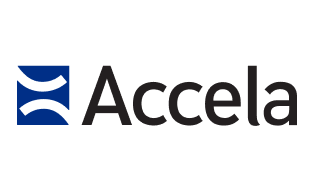
For 83 years the National Environmental Health Association (NEHA) has held their influential Annual Educational Conference & Exhibition (AEC), an event that brings together environmental health professionals from across the country to network, learn about new developments in environmental health regulation, and to provide a venue for sharing ideas on how to solve common challenges. This year, the conference is in lively Nashville, Tennessee, which is sure to bring large numbers of eager environmental health professionals to mingle and bring home great ideas for how their agency can tackle their most pervasive pain points.
For the past several years, Accela is proud to have partnered with NEHA, not only as a sponsor of the AEC, but also in the way of a popular program which awards a free conference ticket to a handful of environmental health professionals who might not otherwise be able to attend. The program, known as the Accela NEHA AEC Scholarship asks professionals working in the environmental health field to consider how they would respond to a thoughtful question on health regulation. The questions have ranged from considering the impact of news headlines on public health awareness, to pondering how health departments can be more prepared in the case of a natural disaster.
In previous years of offering the scholarship, we’ve been lucky enough to gain insight into the challenges that some health departments face. One submission, for example, was about how one municipality had identified an unusual source of lead finding its way into groundwater: what they found was that spices used in Indian folk art being was being washed away and seeping into groundwater. This finding launched a public outreach campaign to warn community members about other potential sources of lead contamination in waterways, and teaching them the importance of monitoring their children’s health when it comes to looking out for lead poisoning in children.
Other submissions explore how mobile devices might be used to report hazards more quickly and precisely when mobile inspection apps are tied to an agency’s data system, and can associate data to a GIS parcel. Though this technology is already in use in many municipalities, some regions still rely on paper for their data collection – which can be a huge hinderance in the event of a disaster.
Another interesting read delved into how headlines can help or hinder public awareness of health outbreaks, using the Zika virus outbreak as an example. One respondant talked about how sometimes public awareness of something like the Zika outbreak can help be a neutral conversation starter during inspections, and can provide a teaching moment to relate regulations and inspection report line-items back to taking part in spreading a disease, if they don’t work to reduce areas where mosquitoes can breed.
The prompt this year is as timely as ever and encourages applicants to consider some of the main challenges their agency faces, and how those challenges might be solved in the next five, ten, or even twenty years. Some applicants might turn to technology such as self-driving vehicles, or remote-site visits via drone as a basis for their argument; or they might choose to focus on underlying challenges inherent to government, such as agreeing on a regional permitting inspection report, data management system, or MOUs amongst agencies to better streamline public health protection and data collection.
The ideas can be realistic, and based on technology available now, can draw from examples of interventions used in other municipalities, or can be as far-out as our applicants’ imaginations can take them. We hope that applicants will have fun with their responses this year, and we look forward to what the submissions bring.
The application period is open now and closes on March 31, 2019. Applicants will be notified in the first two weeks of April 2019 so they can plan accordingly.
If you or someone you know is interested in receiving a free conference ticket to NEHA’s AEC through the scholarship this year, please check out the submission website for eligibility requirements and terms.




